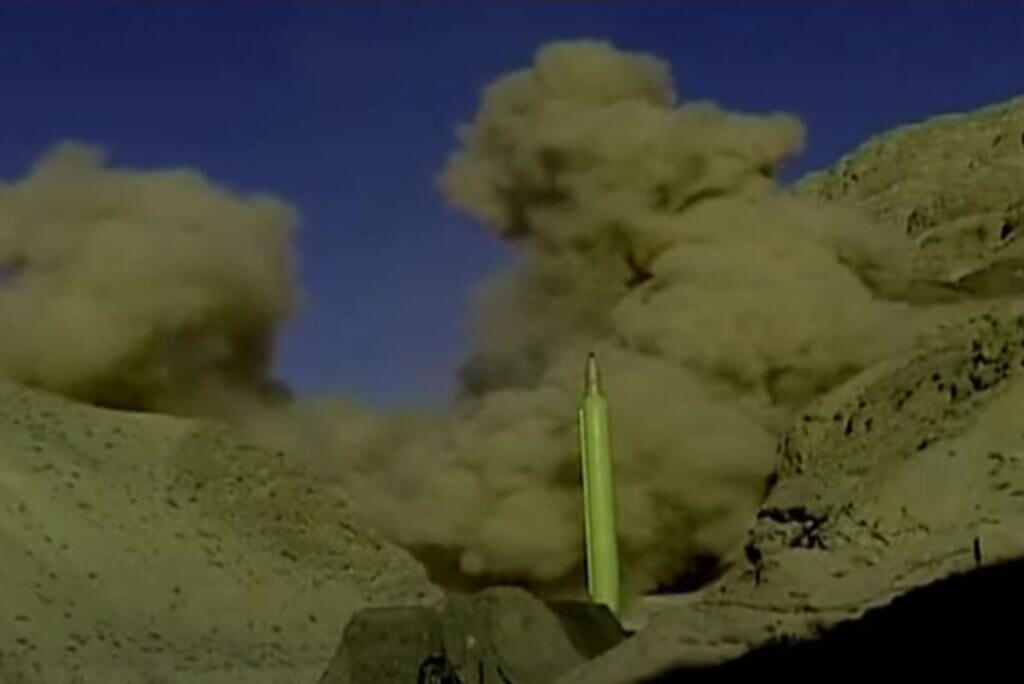As Prime Minister Benjamin Netanyahu braced for his meeting with U.S. President Barack Obama scheduled for Monday, in which he was expected to warn the American president against lifting Iranian sanctions, U.S. Ambassador to Israel Dan Shapiro took to the airwaves in efforts to assuage Israeli fears.
Speaking to Israel Radio on Monday, Shapiro said Israel and the U.S. have identical goals in regard to Iran and reiterated that both countries wish to prevent Iran from obtaining nuclear weapons.
Shapiro said further that in their meeting Monday, Obama and Netanyahu would outline a joint plan for continued action, in close cooperation and without any surprises.
“There is nothing to worry about over our joint approach to the Iranian issue,” Shapiro told Israel Radio. “Our goals are the same, and our leaders agree on these goals. The main objective is to prevent Iran from obtaining nuclear weapons.
“The two leaders agree that it is preferable to try to resolve this problem diplomatically, and what is required now is not just soothing words from the new Iranian government but also real, practical, verifiable steps that can lead to a meaningful agreement—one that will ensure that Iran does not develop nuclear weapons under any circumstances.”
The ambassador declined to say whether the U.S. would consider lifting or easing the sanctions imposed on Iran, but he did stress that the upcoming meetings between U.S. Secretary of State John Kerry and his Iranian counterpart, Mohammad Javad Zarif, would reveal how willing Tehran actually is to move forward.
Meanwhile, on Monday, Netanyahu prepared to bring an unpopular message to the White House and the U.N. in the coming week: Don’t be fooled by Tehran’s new leadership.
Netanyahu contends Iran is using conciliatory gestures as a smoke screen to conceal an unabated march toward a nuclear bomb.
He will deliver those strong words of caution—and fresh intelligence—in an attempt to persuade the U.S. not only to uphold the economic sanctions on Iran but to deepen them, in efforts to prevent the Islamic republic from developing a bomb or getting closer to becoming a nuclear threshold state.
With the White House cautiously optimistic about its dialogue with Iran, Monday’s meeting between Netanyahu and Obama could be tense.
“I will tell the truth in the face of the sweet talk and the onslaught of smiles,” Netanyahu said before boarding his flight to the U.S. on Sunday. “Telling the truth today is vital for the security and peace of the world, and, of course, it is vital for the security of the state of Israel.”
Israeli leaders watched with great dismay what they derisively call the “smiley campaign” waged by Iran’s new president, Hasan Rouhani, last week. Rouhani delivered a conciliatory speech at the U.N. in which he repeated Iran’s official position that it has no intention of developing nuclear weapons and declared his readiness for new negotiations with the West.
Capping off the visit, Rouhani and Obama held a 15-minute phone call as the Iranian leader was traveling to the airport. By the end of the call, which was the first conversation between the nation’s leaders in 34 years, Obama was suggesting that a breakthrough on the nuclear issue could portend even deeper ties between the U.S. and Iran. U.S. and European diplomats hailed a “very significant shift” in Iran’s attitude and tone.
For Netanyahu, such sentiments are reason for concern. For years, he has warned that Iran is steadily marching toward developing nuclear weapons, an assessment that is widely shared by the West because of Iran’s continued enrichment of uranium and its run-ins with international nuclear inspectors.
The Israeli prime minister contends Rouhani’s outreach is a ploy to ease international sanctions and buy time. Iran insists its nuclear program is for peaceful purposes only.
Israel considers a nuclear-armed Iran an unacceptable threat, given repeated Iranian assertions that the Jewish state should not exist. Israel has a long list of other grievances against Iran, citing its support for hostile Arab militant groups, its development of long-range missiles and alleged Iranian involvement in attacks on Israeli targets in Europe and Asia.
On Sunday, Israel announced the arrest of a Belgian-Iranian businessman on espionage charges.
Netanyahu says the new Iranian leader must be judged on his actions, not his words. In the meantime, he says, sanctions and other international pressure, including the threat of military action, must be increased. He has likened Iran to North Korea, which used the guise of international negotiations to secretly develop a nuclear weapon.
Netanyahu appears to enjoy widespread domestic support for his tough approach. Israel’s Channel 10 television network aired a poll on Sunday indicating 78 percent of Israelis don’t believe Iran truly wants to resolve the nuclear standoff; 59 percent said they did not think the U.S. would reach an agreement with Iran; and just 29 percent said they expected a resolution. The network did not say how many people were polled.
Zalman Shoval, a former Israeli ambassador to the U.S. who now serves as an adviser to Netanyahu, says the prime minister will present Obama with “some very hard facts” based on intelligence showing that Iranian behavior has not changed.
Similarly, in his speech at the U.N., “[Netanyahu] will make it very clear that Israel and the world at large should continue to be on guard,” Shoval says.
Over the years, Israel has issued shifting assessments of how close Iran is to producing a weapon. Last year, Netanyahu presented a cartoon diagram to the U.N. showing that Iran would enter the final phase of weapons production by mid-2013. Israel has since backed off that assessment.
Strategic Affairs, Intelligence and International Relations Minister Yuval Steinitz says international pressure forced Iran to slow production.
“Netanyahu had previously led the sanctions against Iran, and now the Iranians are trying to do the bare minimum to maintain their efforts to acquire nuclear weapons, [which they will] in a short time. Therefore it is better to have no deal [with the Iranians] than a bad a deal. The sanctions should be made stricter, not relaxed,” an Israeli government official says.
While American officials are well aware of Israel’s concerns, they say there are no plans to reverse the latest diplomatic push.
Two senior Obama administration officials say the U.S. expects Israel to be skeptical about Iran’s overture and that the U.S. is similarly skeptical.
Obama will try to convince Netanyahu that the U.S. won’t consider lifting sanctions until Iran takes concrete actions to show it is serious about a verifiable, transparent agreement, say the officials who spoke on condition of anonymity because they were not authorized to discuss the matter with the media.
Obama will also seek to assure his Israeli counterpart that if the U.S. reaches a deal with Iran, it will ultimately advance Israel’s security interests by resolving the nuclear issue without the need for military intervention.
Obama’s bottom line remains that Iran can’t be allowed to develop a nuclear weapon, the officials say.
Israel, however, wants the U.S. to establish clear “red lines” to prevent Iran from pressing forward with its nuclear program and moving toward threshold status: having the capability to build a nuclear weapon without actually possessing one. That scenario is unacceptable to Israel.
Netanyahu has laid out four demands: that Iran stop enriching uranium; that its stockpiles of enriched uranium be removed from the country; that a fortified underground enrichment facility be shut down; and that Iran refrain from making plutonium, another possible path toward nuclear weapons.
Professor Eytan Gilboa, an expert on U.S.-Israel relations at Israel’s Bar-Ilan University, predicts a “very difficult conversation” on Monday.
“[The Americans] like Rouhan,” Gilboa says. “They think he represents a new policy, a new approach, and therefore should be given at least a chance. Netanyahu’s strategy is to say that this whole thing is a big hoax. There are no buyers for his message.”
For the original article, visit israelhayom.com.
See an error in this article?
To contact us or to submit an article























